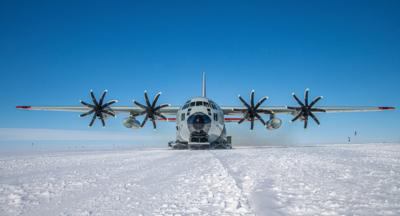Sun, Oct 03, 2021
Advertisement
More News
 ANN's Daily Aero-Term (10.31.25): Minimum Sector Altitude [ICAO]
ANN's Daily Aero-Term (10.31.25): Minimum Sector Altitude [ICAO]
Minimum Sector Altitude The lowest altitude which may be used under emergency conditions which will provide a minimum clearance of 300 m (1,000 feet) above all obstacles located in>[...]
 ANN's Daily Aero-Linx (10.31.25)
ANN's Daily Aero-Linx (10.31.25)
Aero Linx: African Civil Aviation Commission (AFCAC) At AFCAC, our Safety Strategic Objective is to enhance Aviation Safety and the efficiency of Air Navigation Services in Africa.>[...]
 NTSB Final Report: Airbus A321-271N (A1); Cessna 172N (A2)
NTSB Final Report: Airbus A321-271N (A1); Cessna 172N (A2)
The Local Controller’s Poor Judgment In Prioritization Of Their Ground Traffic Ahead Of Their Airborne Traffic Analysis: Hawaiian Airlines flight 70 (HAL70), N2165HA, an Airb>[...]
 ANN FAQ: Follow Us On Instagram!
ANN FAQ: Follow Us On Instagram!
Get The Latest in Aviation News NOW on Instagram Are you on Instagram yet? It's been around for a few years, quietly picking up traction mostly thanks to everybody's new obsession >[...]
 Airborne 10.30.25: Earhart Search, SpaceX Speed Limit, Welcome Back, Xyla!
Airborne 10.30.25: Earhart Search, SpaceX Speed Limit, Welcome Back, Xyla!
Also: Beech M-346N, Metro Gains H160 EMS STC, New Bell Boss, Affordable Flying Expo Tickets NOW On Sale! Purdue University’s Research Foundation and the Archaeological Legacy>[...]
blog comments powered by Disqus




